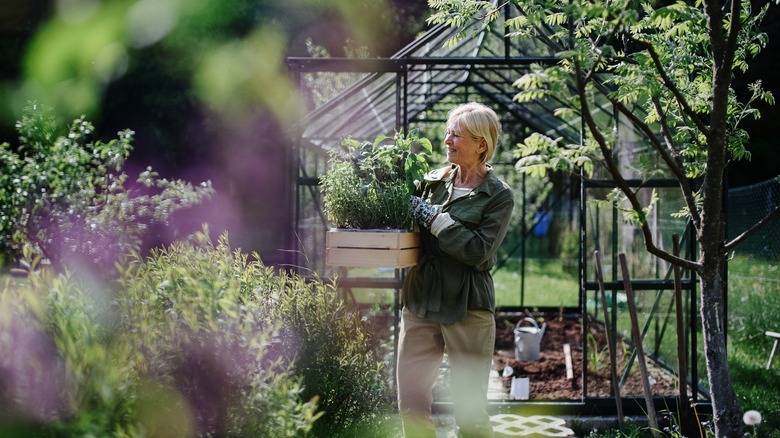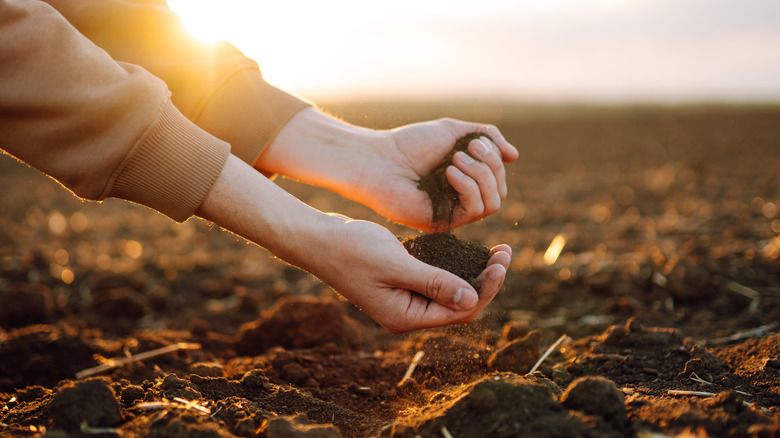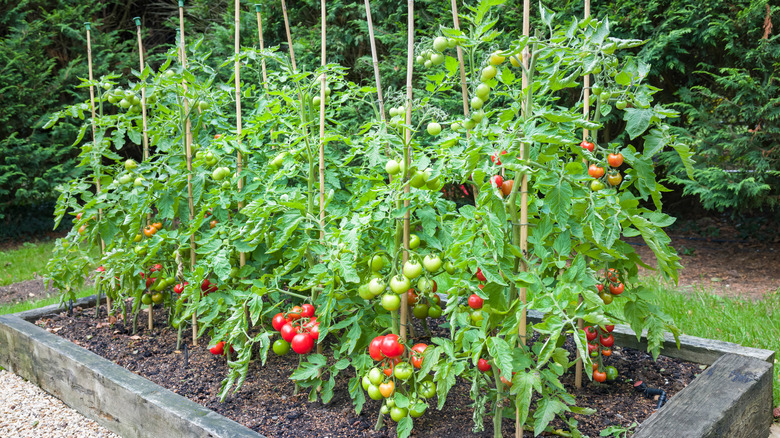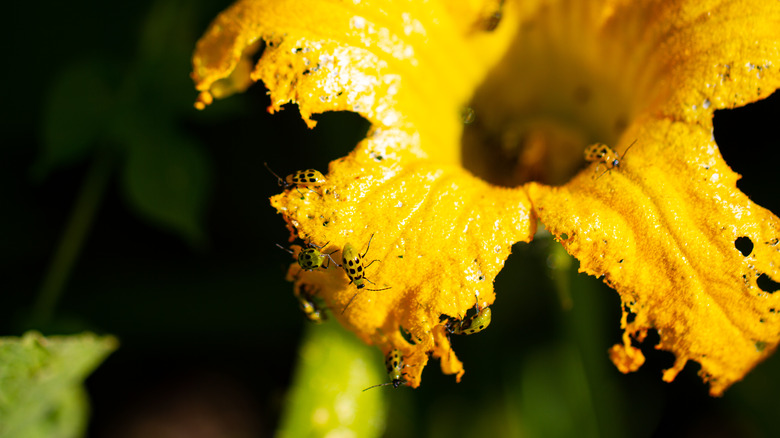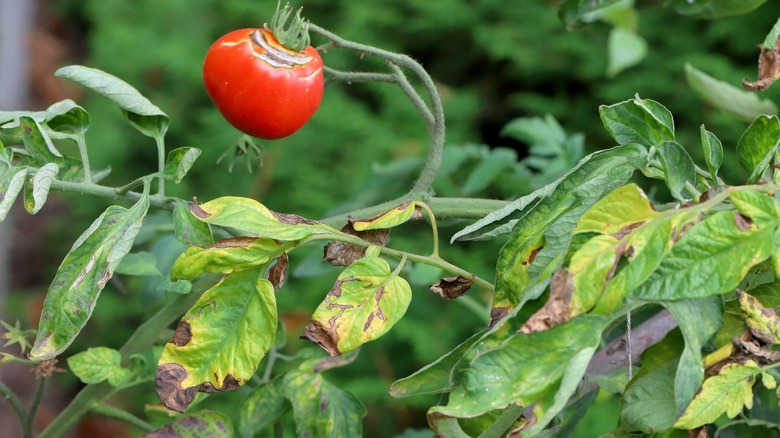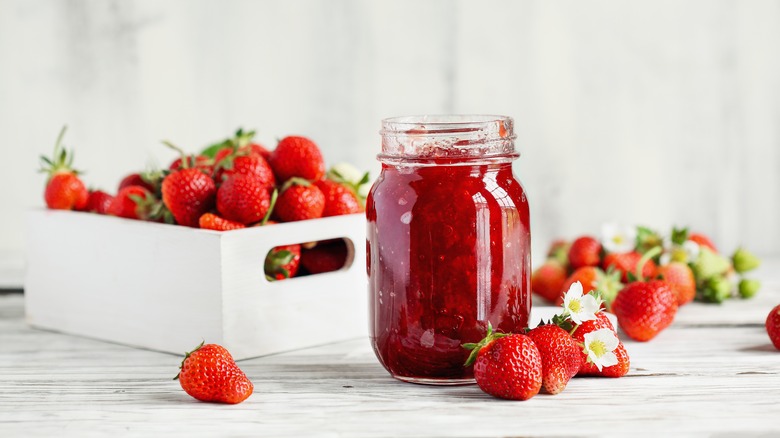How Your Local Extension Service Can Help You Grow A Gorgeous Garden
According to the National Institute of Food and Agriculture, what originated as agricultural clubs in the 1800s has grown into an extension program. The extension program became official due to the Smith-Lever Act connecting the United States Department of Agriculture (USDA) with land-grant universities. These schools, which were selected to receive federal land for research (via The Association of Public and Land-grant Universities), assist farmers and home gardeners as an extension of their educational services.
The National Pesticide Information Center states every county in the United States has an extension office, so matter where you are, there is an extension near you. These offices work closely with their affiliated school to turn academic research into practical information anyone can understand. Perhaps the best thing about your local extension office is the free assistance. You can call anytime with questions, and someone will be there to help you with issues you are facing in your garden. Depending on where you live, some services, like soil testing or plant pathology, may require a small fee; however, calling for help never costs a dime. Find your local office on the USDA website and call or stop in to see what kind of aid is available in your area.
1. Soil building
Growing healthy plants starts with good soil. Although you can get a do-it-yourself soil testing kit at many garden centers, getting a professional soil test at your local extension office will give you more accurate and detailed results. Also, if you get your soil tested through the University extension office, they may provide recommendations to help you build a healthier soil environment, states Gardening Products Review.
Many, but not all, land-grant schools offer soil testing. At some extension offices, testing is complimentary, while others charge a nominal fee. For example, at the University of Arkansas Cooperative Extension Service, soil tests are free for in-state residents, while at Purdue University Extension, a basic soil test is $10. You can get soil testing services from independent companies, but you will pay a lot more for the same results, so why not support your local extension office and pick up more gardening info while you are there?
2. How to grow
Even though a lot of the research done at Universities is for large-scale growing, like on farms and ranches, they still have loads of free information for the home gardener. Fact sheets are available on every topic, from selecting a spot for your new garden to growing specific plants. These publications result from direct scientific research specific to your geographical area. However, some offer more general information, like "Preparing a Vegetable Garden" from the University of New Hampshire Extension.
It's easy to do an internet search for "How to grow..." but you will not always get the right advice for your region. One of the great benefits of getting information from your local extension is that the knowledge you receive is based on local research designed for your environment. For instance, growing tomatoes in Maine is very different from growing them in Arizona! Cultivating the right plants in your region will save you time and frustration. Maybe you don't have a black thumb and are just getting your information from the wrong places.
3. Pest identification
Pests are a problem in every garden; even the most experienced gardener deals with them yearly. If you are new to gardening, seeing an infestation on the plants you have worked so hard to nurture is very frustrating and can cause you to consider giving it all up. But before you throw in the towel on your garden pursuits, call your local extension office. Each extension service will have a different process for identifying pests. You may be able to explain it over the phone, and you could get an ID just based on a description of the insect and the plant it is affecting.
Cucumber beetles, for example, are very distinctive, according to GardenTech. By simply describing their small, yellow spotted or striped bodies on your cucumber or squash plant; someone can help you with identification and control methods. In more complicated pest identification cases, you may be able to bring a sample to the extension office for ID, where they will likely send it to the University for analysis. If this is your plan, contact your office or check their website for instructions, like these from the OSU Extension Service.
4. Dealing with plant diseases
Plant diseases can be challenging to identify and manage. Is that blight on your tomato plant or a mosaic virus? And how do you stop it? It is difficult to get a correct ID on a plant disease via an internet search, although you might get an idea of what the problem could be. Just like humans, when dealing with a sick plant, it is vital to get the correct diagnosis to treat it and stop its spread.
Extension offices can send plant tissue samples to their related University's diagnostic labs. WVU Extension suggests calling your local office before bringing in a sample because some issues may be diagnosed over the phone. If you cannot get a definitive answer that way, ask how to submit a sample for diagnostics or check the county's website for instructions and to see if there are any fees. Once you identify the problem, the extension office is there to offer suggestions on how to manage it.
5. Food preservation
Your local extension office not only helps you grow food, many offer classes on safe food preservation for that bumper crop of tomatoes you'll get after all that knowledge you have received. In-person food preservation classes can be a lot of fun and are usually free or inexpensive, and they are a great way to make new friends with similar interests. There are also online classes, like this one offered by Oregon State University.
Canning and other types of food preservation are topics you should be cautious about learning on TikTok or YouTube. Improperly canned food can lead to the growth of botulism, an invisible, tasteless bacteria that can make you or someone you love very sick, and it can even lead to death, according to the Centers for Disease Control and Prevention. If you plan to preserve your harvest and enjoy it through the winter months, learn directly from your local county extension service experts.
